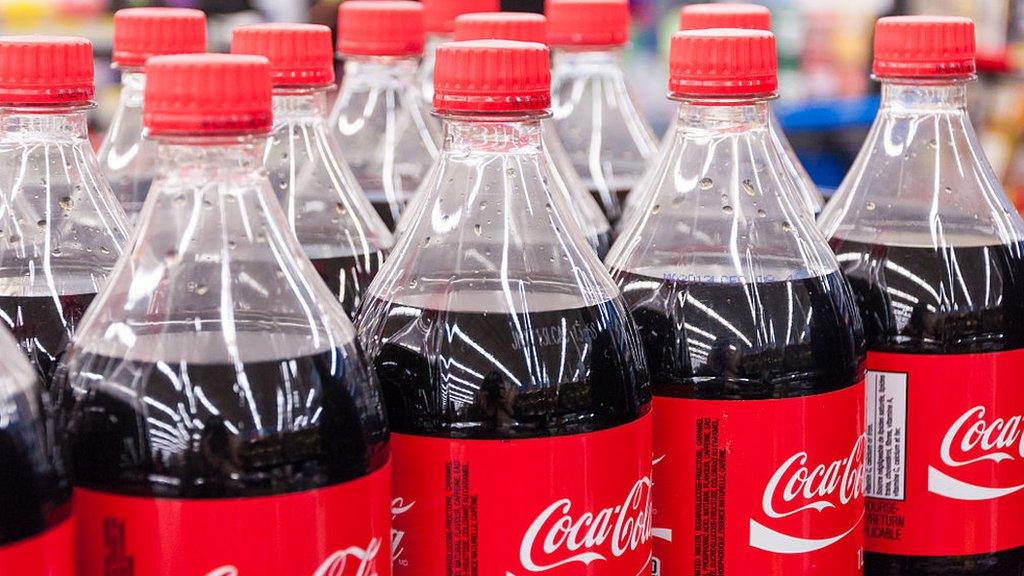COP27: Meet young activists from around the world
- Published
- comments
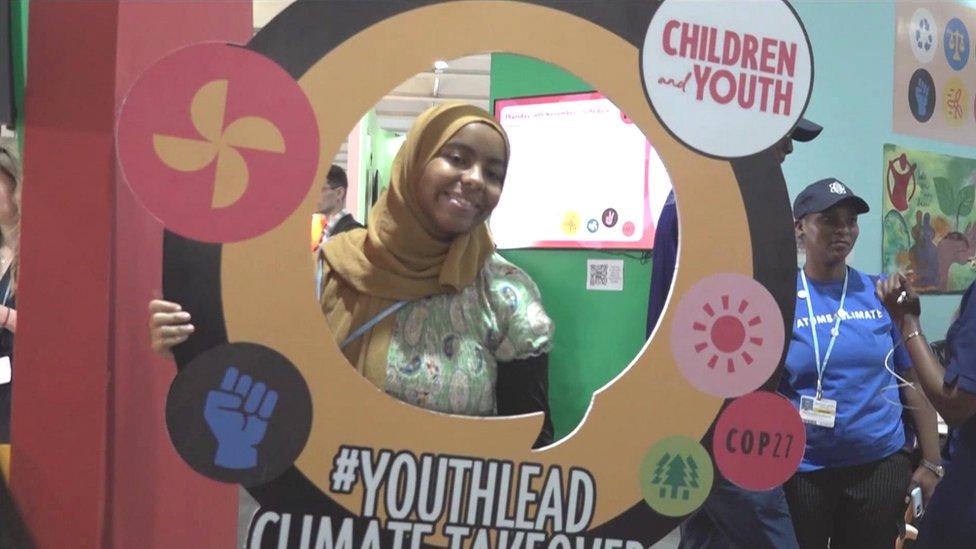
Young people from around the world have been speaking at the COP27 climate change conference held in Egypt.
The event - which is held in different places around the world each year - is hosting a Youth and Future Generations Day to celebrate the contributions of young people in the debate on how to tackle climate change.
Young activists who live in completely different parts of the globe explained the unique challenges each of their countries face.
Some protested peacefully outside of the conference while others expressed themselves with artwork or messages to world leaders.
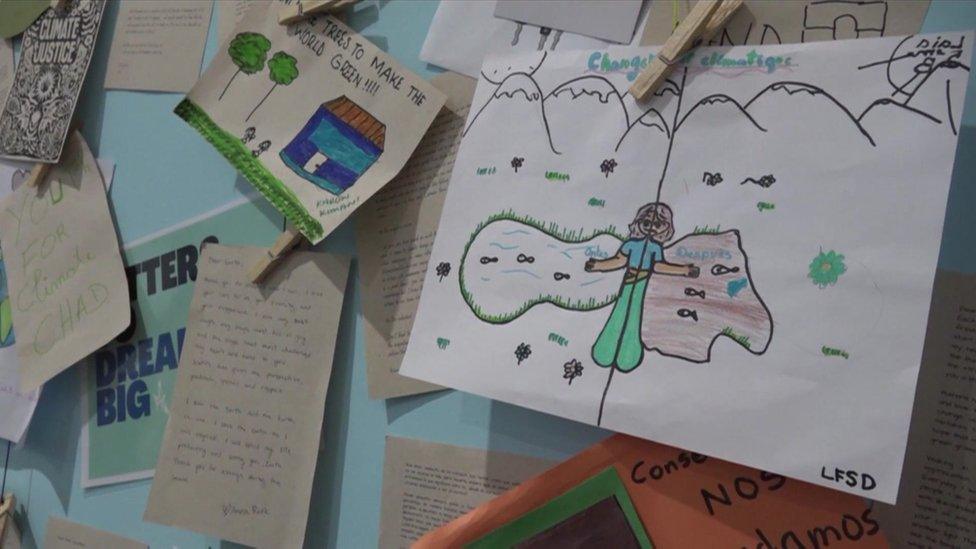
Children and young people have left letters and drawn pictures with messages to world leaders at COP27
Brazil: Txai Suruí
Txai Suruí, an indigenous leader and activist from the Brazilian Amazon rainforest in South America.
"I am here today at COP27 representing the Youth, in particular the indigenous youth of Brazil, my country, which is experiencing the worst moments its people have gone through. They are being attacked, their territories are being invaded," she said.
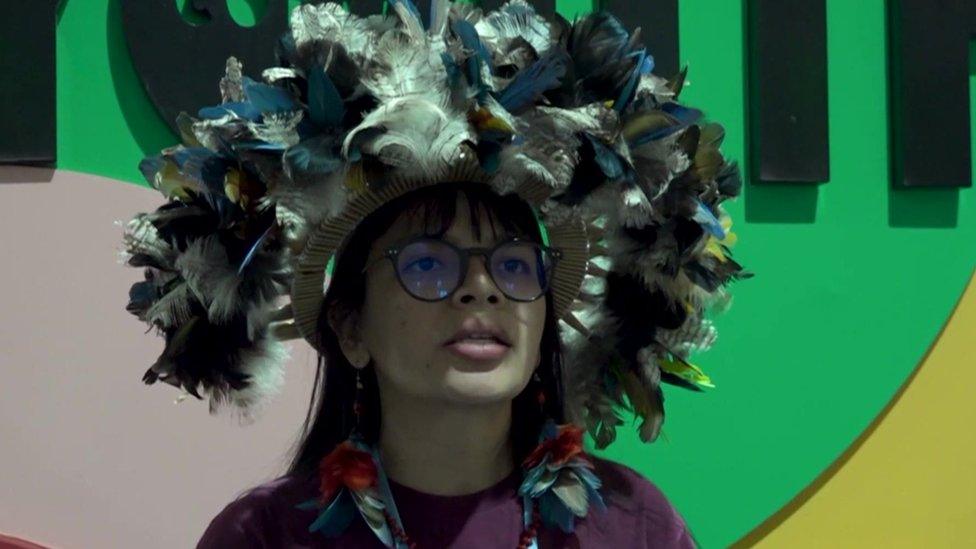
"People need to act now, and we need everyone," she added explaining that it's important for indigenous people to have a voice when it comes to climate action.
"People need to participate in the whole process, because we are the one who are there every day, fighting and keeping the forests up. Us, indigenous peoples, we are five percent of the world's population, and we protect 80 percent of all biodiversity."
The Amazon rainforest is 24 times the size of the UK, and is important in the world's fight against climate change. Scientists often call the rainforest the "lungs of the planet" because of the role it plays in absorbing carbon dioxide and producing oxygen.
Txai Suruí spoke to Newsround at COP26 in Glasgow (2021)
The Amazon has been under increasing pressure recently with Brazil setting a new deforestation record earlier this year for the amount of trees cut down in the rainforest in one month.
However, after recent elections in Brazil, the country's new president Luiz Inácio Lula da Silva has said he wants to increase protection measures for the Amazon and has promised to "aim for zero deforestation".
Uganda: Patience Nabuklau
Patience Nabuklau from Uganda in east Africa, had a message to world leaders in which she said: "Stop investing dirty energies in Africa. Africa is not a dumpster. Africa is not a place for fossil fuel extraction."
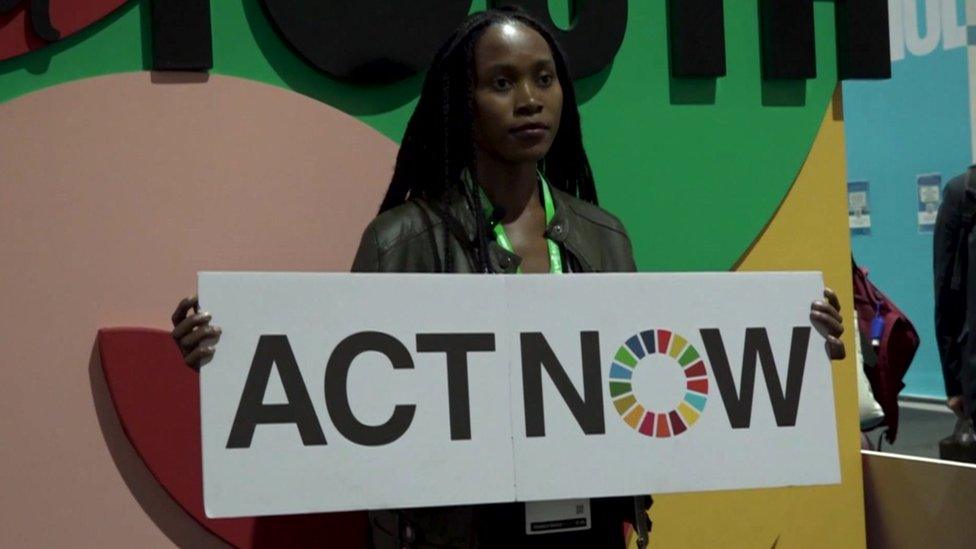
She said, "Africa alone contributes less than 3 percent of global emissions, but we suffer most from the devastating impacts of climate change. We need action and right now."
Africa has reserves of gas and oil and as the prices of these fossil fuels goes up, it has become more appealing for African leaders to extract them to sell to other countries which are replacing supplies originally from Russia.
However, climate experts have warned that this is a step away from renewable energies and will make it harder to achieve the lglobal heating target limit of 1.5C.
Morocco - Saad Uakkas
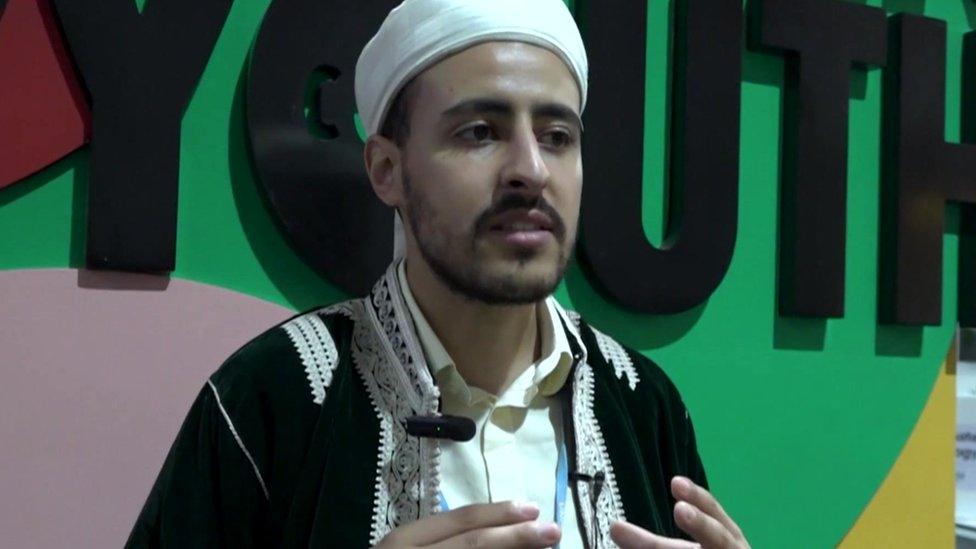
Saad Uakkas, a youth climate activist from Morocco said that he is very happy that COP27 is happening in his home continent of Africa.
He called on governments to provide money to communities where the environment has been damaged or lost because of climate change.
"So that we can support the continent and support those who are vulnerable," he said.
Sixty percent of people in Morocco live on the coast and it's predicted that rising sea levels as a result of global warming could significantly effect these communities with coastal flooding over the next 30 years.
Ghana: Margaret Impraim
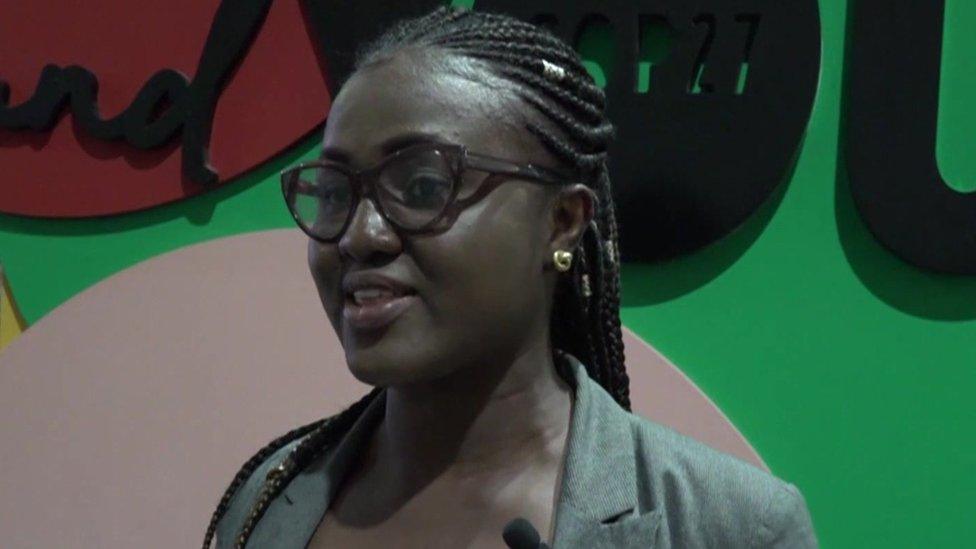
Margaret Impraim from Ghana in West Africa, said: "We all have to come together to make sure that our role is to ensure climate change is eradicated in my country, and particularly in making sure that we all combine our forces and make sure that climate action is real in Ghana."
Higher temperatures in Ghana could see a decrease in fresh water from river basins, meaning the country could face challenges accessing clean drinking water in future years.
We all have to come together to make sure that our role is to ensure climate change is eradicated in my country.
India: Disha Annappa Ravi
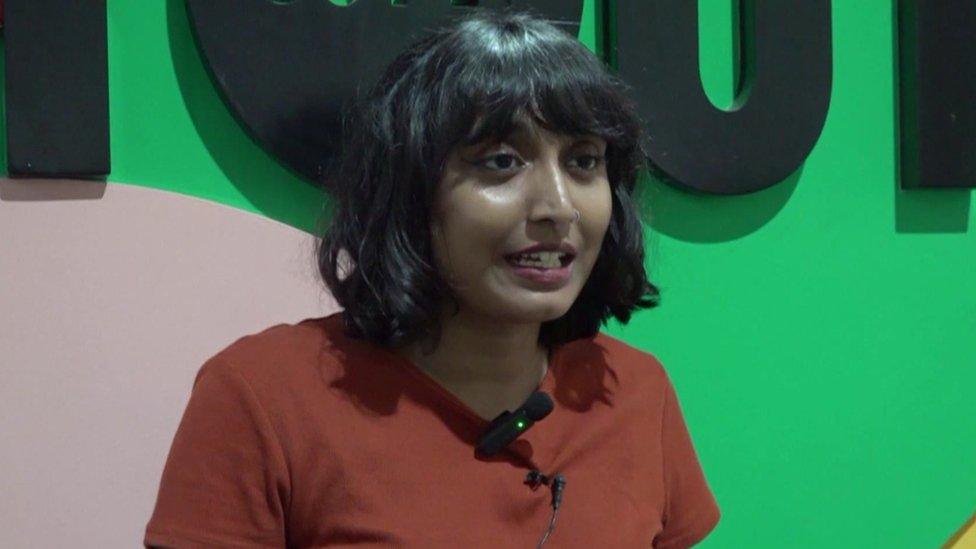
Disha Annappa Ravi from India said: "We shouldn't be negotiating about the climate because negotiating about the climate is negotiating with our world itself. We need a better present and a future."
India will be one of the nations most significantly affected by climate change, because it has a huge population of over one billion people and high levels of inequality and poverty among those living there.
A 1.5C increase in global temperatures could see dangerously extreme heatwaves in the region, make it more difficult to produce food in the country and see people have to leave their homes along India's large coastline, due to rising sea levels.
Dominican Republic: Eddy Frank Vasquez Sanchez
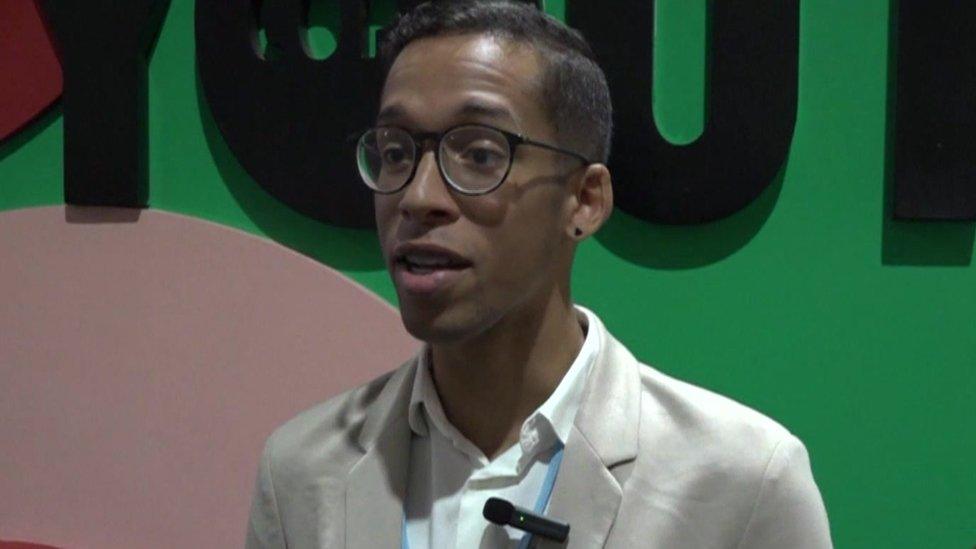
Eddy Frank Vasquez Sanchez is a climate activist from the Dominican Republic, a Caribbean nation south east of Cuba.
He said: "As a young person coming from a Small Island Developing State, climate negotiations have a very important value - so that our future can be climatically secure for everyone."
In 2017, the Dominican Republic was ranked the 11th most vulnerable country in the world to climate change.
Farming and the growth of crops has become more difficult in the country due to an increase in extreme weather events such as storms, flooding and high temperatures causing drought.
- Published7 November 2022
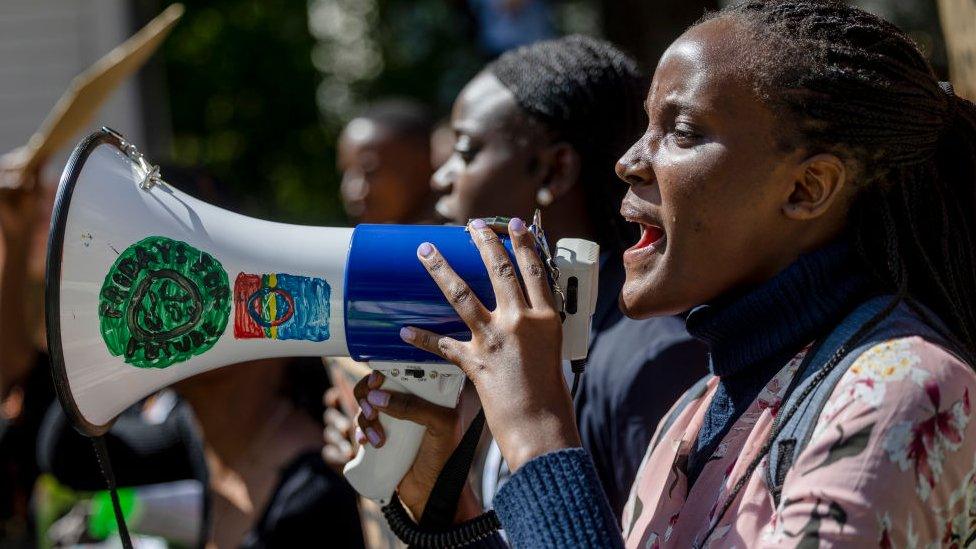
- Published8 November 2022
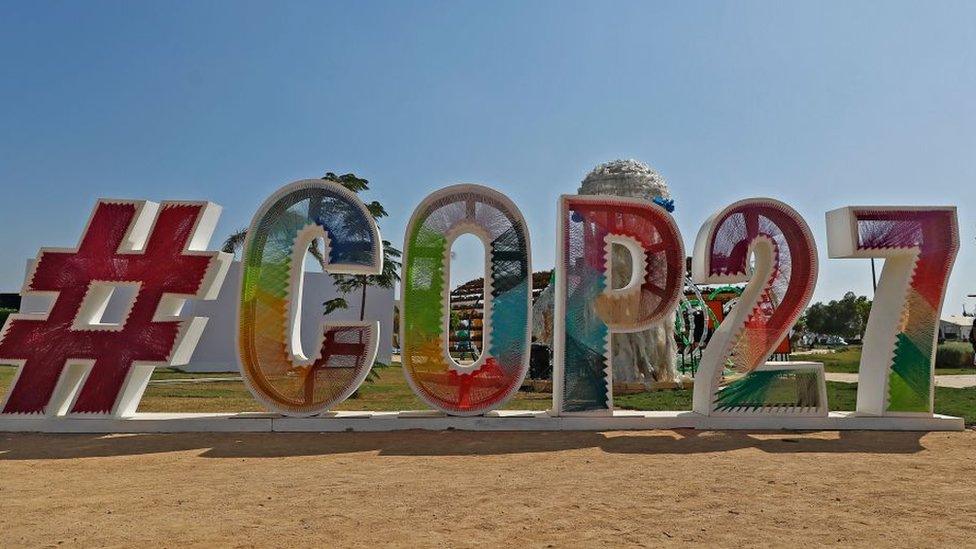
- Published8 October 2022
